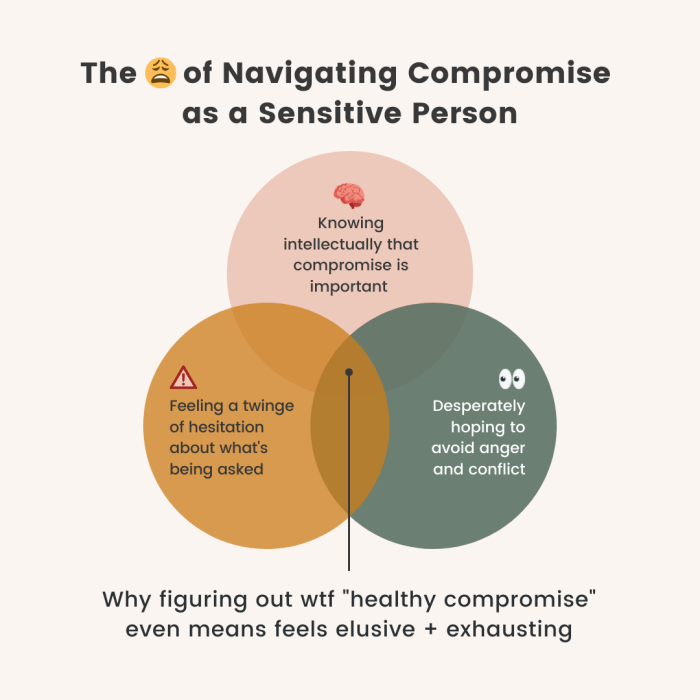How doth we channel this lack of compromise sets the stage for this enthralling narrative, offering readers a glimpse into a story that is rich in detail and brimming with originality from the outset.
This discourse delves into the profound significance of adhering to unwavering principles, exploring the profound consequences of compromising one’s values. Through a meticulous examination of individuals who have remained steadfast in their beliefs, we uncover the strategies for maintaining unwavering commitment, identifying techniques for staying true to one’s convictions and the role of self-discipline and resilience in upholding principles.
The Importance of Uncompromising Principles

Adhering to strong principles is crucial for personal and societal well-being. Principles provide a moral compass, guiding our actions and decisions, and shaping our character. By upholding our principles, we maintain integrity, build trust, and foster a sense of purpose.
Conversely, compromising our values can have detrimental consequences. It erodes our self-respect, undermines our credibility, and sets a precedent for future ethical breaches. Furthermore, it can lead to feelings of guilt, shame, and regret.
Examples of Individuals Who Have Remained Steadfast in Their Beliefs
- Nelson Mandela: Anti-apartheid activist who endured 27 years of imprisonment without compromising his principles of equality and justice.
- Malala Yousafzai: Pakistani activist who advocated for girls’ education, even in the face of Taliban threats.
- Mahatma Gandhi: Indian independence leader who practiced nonviolent resistance and civil disobedience to achieve his goals.
Strategies for Maintaining Unwavering Commitment: How Doth We Channel This Lack Of Compromise

Maintaining unwavering commitment to our principles requires conscious effort and dedication. Here are some effective strategies:
Self-Discipline and Resilience, How doth we channel this lack of compromise
Self-discipline involves controlling impulses and adhering to our principles even when faced with temptations or challenges. Resilience refers to the ability to bounce back from setbacks and remain steadfast in our beliefs.
Practical Tips for Overcoming Challenges and Temptations
- Identify potential triggers that may lead to compromise.
- Develop strategies to avoid or mitigate these triggers.
- Surround yourself with people who support your principles.
- Seek guidance and support from mentors or trusted individuals.
- Practice mindfulness and self-reflection to stay true to your values.
The Impact of Compromise on Personal Growth and Development

Compromising our principles can hinder personal growth and self-respect. When we compromise, we sacrifice our integrity, which is essential for self-esteem and a fulfilling life.
On the other hand, unwavering commitment to our principles fosters personal growth and self-respect. It builds character, strengthens our resolve, and enables us to live in alignment with our values.
Case Studies of Individuals Who Have Experienced Transformative Growth Through Maintaining Their Principles
- Viktor Frankl: Austrian neurologist and psychiatrist who found meaning and purpose in life even while imprisoned in Nazi concentration camps.
- Helen Keller: American author and activist who overcame blindness and deafness to become a renowned advocate for social justice.
- Steve Jobs: Co-founder of Apple Inc. who persevered through setbacks and remained true to his vision of creating innovative technology.
The Role of Society in Shaping Uncompromising Individuals

Society plays a significant role in shaping individuals’ principles and values. Social norms and expectations can influence our beliefs and behaviors, both positively and negatively.
Social support and encouragement can bolster our commitment to our principles, while societal pressure can challenge and undermine them. Therefore, it is essential for society to promote ethical behavior and integrity.
Responsibility of Society in Promoting Ethical Behavior and Integrity
- Educating individuals about the importance of ethics and principles.
- Creating a social environment that values and rewards ethical conduct.
- Holding individuals and institutions accountable for their actions.
- Supporting organizations and initiatives that promote ethical behavior.
- Challenging societal norms and expectations that encourage compromise.
FAQ
What are the benefits of adhering to strong principles?
Adhering to strong principles provides a moral compass, guiding decision-making and fostering personal growth. It builds self-respect, strengthens character, and enhances resilience in the face of adversity.
How can we maintain unwavering commitment to our principles?
Maintaining unwavering commitment requires self-discipline, resilience, and a clear understanding of one’s values. It involves setting boundaries, resisting temptations, and seeking support from like-minded individuals.
What are the consequences of compromising our principles?
Compromising principles can lead to feelings of guilt, shame, and a loss of self-respect. It can also damage relationships, erode trust, and hinder personal growth.